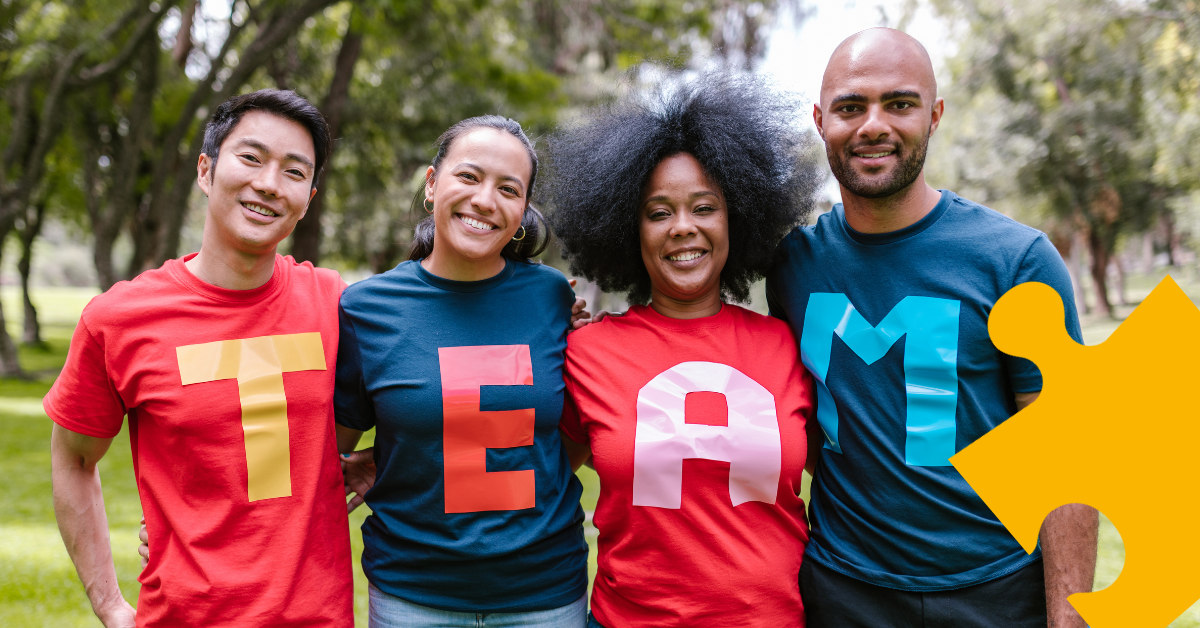What makes a great team player?
In almost every job description you read today, the recruiting company is looking for a ‘team player’. It is more or less an unwritten rule that one should be able to work in a team and be a good team player. But what exactly is the definition of a good team player? What is expected, and what does a ‘good team player’ need to bring to the team? And what if one does not have these skills?
Recruitment often highlights the need for team players, but it's crucial to recognize the variety of roles that contribute to a team's success. By defining these roles and what makes a good team player, we can better match candidates to the right positions and build stronger, more dynamic teams.

Team roles and their characteristics
For recruitment, often the requirement of being a team player is listed. However, there are several different team roles. In teams, individuals often gravitate toward specific roles based on their skills, personalities, and work preferences. Dr. Meredith Belbin’s team role theory outlines nine common roles in effective teams, which can be grouped into three main categories:
Action-Oriented Roles
These roles focus on turning ideas into action and achieving goals:
- Shaper: Energetic, challenges the team to improve, thrives under pressure, and often takes the lead.
- Implementer: Practical, efficient, turns ideas into manageable tasks and follows through reliably.
- Completer-Finisher: Detail-oriented, ensures thoroughness, meets deadlines, and identifies potential risks.
People-Oriented Roles
These roles emphasize collaboration and fostering relationships:
- Coordinator: Facilitates communication, assigns tasks appropriately, and keeps the team focused.
- Teamworker: Diplomatic, promotes harmony, and helps manage conflicts.
- Resource Investigator: Outgoing, explores opportunities, and brings in external ideas and connections.
Thought-Oriented Roles
These roles focus on generating and evaluating ideas:
- Plant: Creative thinker, provides innovative ideas, but may lack practicality.
- Monitor-Evaluator: Logical, impartial, and excellent at analyzing options and identifying the best approach.
- Specialist: Expert in a specific field, contributes deep knowledge and expertise.
Definition of a good team player
A good team player isn’t confined to a single role but exhibits a mix of adaptability, reliability, and interpersonal skills. They can adjust to the needs of the team while maintaining a commitment to the team’s goals. These qualities characterize a good team player:
Adaptable: Willing to take on different roles depending on the situation and team needs.Reliable: Consistently meets deadlines, delivers quality work, and follows through on commitments.
Collaborative: Communicates openly, respects diverse opinions, and works towards consensus.
Constructive: Offers solutions rather than dwelling on problems and is open to feedback.
Empathetic: Understands team dynamics and provides support to teammates when needed.
Goal-Oriented: Focuses on achieving shared objectives over personal recognition.
Conflict-Resilient: Handles disagreements maturely and helps resolve conflicts.
It's important to note that a person doesn't need to perfectly embody every single quality to be a good team player. The key is to have a balance of these traits and a willingness to grow and adapt.

For more insights on how cross-cultural teams work and thrive, check out our next blog: How Do Cross-Cultural Teams Work?
If you are curious about how you can recruit your new team member, welcome to reach out to us at Beyondo!



